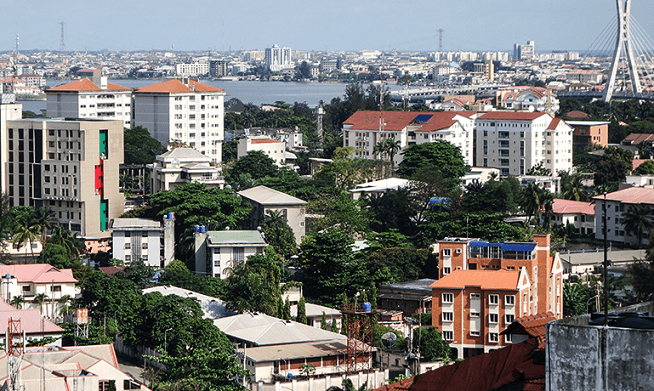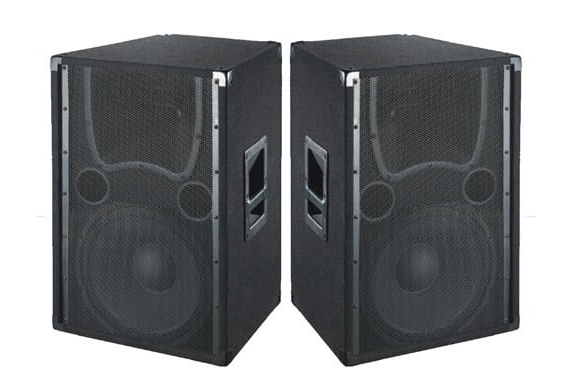Coming to Nigeria without a clear idea of the cost of living can be a costly error. Many people assume that life in Nigeria is provincial and that it is affordable. Relocating based on that assumption can be one of the worst mistakes for expats to make as Nigerian cities like Lagos and Abuja have been repeatedly ranked in the global list of the most expensive cities to live in.
Whether you’re an expat or tourist, you need to plan your budget in line with the reality in Nigeria before you visit the country. You want to make sure you know the cost of transportation, food, housing and much more to avoid issues that may arise due to insufficient funds.

Cost of Living in Nigeria: Brief Overview
The cost of living in Nigeria is dependent on the state you want to live in as some states have a low cost of living where you can easily cover the expenses. However, of the many cities in the country; only two have received significant attention from the world based on the high political and economic relevance they command namely: Lagos and Abuja (the capital). Additionally, many Nigerians believe that these cities offer a lot of opportunities than other states which is one of the key reasons for the continuous influx into these cities.
And just in case you’re surprised that two of Nigeria’s cities rank high in the list of the most expensive cities in the world ahead of prominent cities like Berlin and Barcelona while the country is rated one of the poorest in the world, wonder no more
The answer lies in the oil boom of the 1970s which improved the conditions of the big cities significantly while also causing the population to explode. Consequently, private investment in amenities and luxuries to meet the needs of foreigners and businesses increased which eventually spiked costs in the cities.
We have done some decent research on the cost of living in Nigeria using the two economic powerhouses (Abuja and Lagos) and have compiled the data so you can make informed decisions. Without further ado, let’s delve into the full analysis.
Cost of Living in Nigeria: Housing
Generally, the cost of housing is indiscriminately high and varies from place to place in Nigeria. In most cases, hiring companies find and secure houses for their expats to relieve them of the stress of home hunting. Some companies go further to foot the bill which is usually part of the benefits that come with the job.
In some instances, some companies purchase or sub-let large quantities in areas for their expatriate staffs. These areas, generally known as expat quarters, often have the key features needed for comfortable living.
However, if you’re looking to rent a decent apartment in Lagos or Abuja, get ready to part with anything between N600,000 (about $1,700) and N4,000,000 (about $11,000) per annum, depending on the area you choose to live in, and the number of rooms in the apartment.
The high-end areas in both cities command fatter rents because these areas usually have a good road connection, power supply and electricity supply. The level of security in such upscale areas is also high.
Prices vary for those who may be thinking of buying a home in any of these two cities. While the exact price of an apartment will depend on a variety of factors like the area you want to buy the property from, social amenities and your negotiation skills among other things, you will need to budget in around N400,000 (about $1,200) per square metre.
Utility bills such as heating, electricity and gas are usually within the range of N15,000-20, 000 while the cost of internet connection is between N10,000 and N30,000. People who need help with cleaning can get such services at an hourly rate of N2,000 – N3,000.
However, note that the cost of utility bills is dependent on the number of people who occupy the accommodation and as such, the prices may rise.
Cost of living in Nigeria: Transportation
One of the items that can take a huge chunk of anyone’s expenses in Nigeria if not properly planned for is transportation. Much like housing, the cost of transportation varies in different parts of the country.
While the cost of transportation is a little on the high side in the more developed Southern part of Nigeria, it is significantly lower in the Northern part.
Most expats prefer to hire a local who knows the routes across the city for the sake of convenience and efficiency. Although taxi companies like Uber and Taxify are getting more popular in some states, some expats prefer to ride in their company car. If you’re considering this option, you will need to include the salary of the individual into your monthly budget as well as other costs associated with transport like car insurance, fuel and maintenance costs.
As at the time of writing, a litre of PMS (popularly called petrol in Nigeria) costs N145 while the average cost of transportation is about N200. Some roads in the cities are in a bad shape and you might need to spend more to get to those areas. Unlike Abuja, Lagos is known for its legendary gridlock that besieges roadways which usually gets worse during the rush hours. At such times, some locals navigate their way through the treacherous traffic by using improvisational motorbike taxis (called “okadas” by Nigerians) which also cost an average of N200 (depending on the distance).
Alternatively, you can make use of cab-hailing services which costs about N300 – 500 per kilometre and N1,000 – N4,000 per hour waiting. If you would like to own your car, you can purchase either a brand-new vehicle or a used one (called “Tokunbo” by Nigerians) from as low as N1,500,000. However, keep in mind that transportation costs in Nigeria are volatile due to changes in forex and the price of oil in the international market.
Going further, the price of flight tickets from Abuja to Lagos and vice versa costs an average of N50,000; however, you may be able to get a lower price quote if you book in advance. Or you can opt to travel by road and pay between N6,500 and N8,000 for the trip.
Cost of Living in Nigeria: Education
If you’re relocating to Nigeria with your family, chances are that you have a child (toddler, adolescent or teenager). As such, it’s pertinent to factor in the cost of education into your budget as this one of the important factors to note. While government schools are spread across the country, they’re not an option for expats who want to give their children the best education possible.
As expected, the cost of education in private schools is higher than the cost of education in public schools. The tuition fees in a regular primary school is between N30,000 and N150,000 per term, while the prices in international schools usually range from as little as N500,000 up to N3 million per annum. Public schools cost less as the fees can be as low as N5,000.
Even the tertiary institutions are not left out as private universities cost more than government-owned universities. Apart from the quality of education, private universities have the advantage of a smooth academic calendar as there are no industrial actions which the public universities face. However, tuition fees usually begin from around N300,000 up to N4 million.
Cost of Living in Nigeria: Food
Nigeria’s inflation rate has been double digits ever since the recession the country experienced which explains why the cost of foodstuffs in the market has skyrocketed. However, here is a price comparison that shows the cost of each food item in Lagos and Abuja.
Food Item | Average Price in Lagos | Average Price in Abuja |
| 1 kg of tomatoes | N717 | N871 |
| 12 eggs, large | N612 | N600 |
| 500g of local cheese | N1,808 | 1,712 |
| 1 kg of apples | N1,261 | N1,432 |
| 1 kg of potatoes | N1,053 | N827 |
| 500g of boneless chicken breast | N854 | N1,238 |
| 1 litre of whole fat milk | N822 | N763 |
| 1 bottle of red table wine, good quality | N2,327 | N2,044 |
| Bread for 2 people 1 day | N347 | N411 |
| 2 litres of Coca-cola | N343 | N490 |
Basic lunchtime menu (including drink) in a business district costs N2,869 in Lagos and N1,843 in Abuja while a combo meal in a fast food restaurant (popularly called eatery) costs N2,230 and N1,794 in Lagos and Abuja respectively.
Here are prices of other foodstuffs across Nigerian markets which may slightly vary from city to city.
- Rice (50kg bag) = N14, 500 – 17,500
- Beans (50kg bag) = N29, 000 – N36,000
- Yam = N350 – N700
- Wheat (5kg) = N1,100 – N1,400
- Flour (50kg) = N9,400 – N10,700
- Palm Oil (20 litres) = N8,800 – N9,000
- Vegetable oil (25 litres) = N12,000 – N13,000
- Basket of Tomatoes = N5,500 – N7,200
- Box of iced fish = N10,000 – N19,000
- Peanut butter (10 litres) = N6,500 – N7,000
- Banana (1kg) = N450 – N600
Cost of Living in Nigeria: Personal care
Sometimes, the body breaks down and requires medical attention and you want to be ready for such unforeseen occurrences. A short visit to a doctor costs around N6, 700 in Abuja and N11, 088 in Lagos, although this figure may vary in different regions and clinics. Medications (like Tylenol, Frenadol, Coldrex or other similar brands for treatment of cold cost between N1, 400 and N1, 700) for a 6-day course.
As the adage goes, prevention is better than cure which is why it better to pay good attention to personal hygiene. Here is a quick list of the basic items for personal hygiene and the costs.
- 50ml deodorant = N1,300
- 400ml shampoo = N1,300
- Toilet paper (4 rolls) = N412
- Tube of toothpaste = N335
- 1 box of 32 tampons = N2,135
- Standard men’s cut = N1,500
- Fitness club (monthly fee) = N12,350
Cost of Living in Nigeria: Salary and financing
All companies pay their workers in Naira with exception of a few multinational companies that pay their expat staffs in foreign currency. With over 23 job categories in Nigeria as shown by a study, the salary rates vary depending on the nature of job and skill-set required but the minimum wage is pegged at N30,000 (around $85).
However, people living in Lagos and Abuja will spend an average of N2,000 per day (depending on lifestyle) on necessities like transportation, feeding and other expenses.
Unfortunately, one of the biggest problems workers face in Nigeria is that the salaries are seldom paid on time. It’s no longer uncommon for some state governments to default in salary payments for as long as 3 months which has brought untold hardship to the workers and their families while also slowing down the economic activities in the states.
Likewise, getting loans to finance a business can be a herculean task as many entrepreneurs have cried out at various times at the unwillingness of banks to give them loans. This situation is the same across the country as most individuals rely on cooperative societies to raise funds for their projects.
Cost of Living in Nigeria: Entertainment
Couples who are looking to have a romantic evening can have a dinner date in the neighbourhood pub with a budget of N7,000 or they can visit the cinema to see the latest blockbusters with the price of 2 tickets as low as N3,000.
While couples in Abuja can have a special evening outing at an Italian restaurant in the expat area with offerings such as appetisers, main course, wine and dessert for N13,700, couples in Lagos can have the same experience for N20, 275.
Wrap up
Underestimating the cost of living in this West African country can prove to be a grave mistake that could lead to a lot of inconveniences and even debts. It’s advisable to always plan adequately so as to forestall unforeseen circumstances.
While it is easier to cover the cost of living in other parts of the country, the same cannot be said of Lagos and Abuja which are two of the top expat destinations in the world. Having read this far, you can now make informed decisions before moving to the Nigeria.
- Where to Buy Resin in Nigeria (April 2024)
- Radio Jingles Cost in Nigeria (2024)
- Voice Recorder Prices in Nigeria (2024)
- Swift Data Plans, Prices & Codes (April 2024)
- Ntel Unlimited Data Plans, Prices & Codes (April 2024)
- Prices of Hand Mixers in Nigeria (April 2024)
- Cost of Living in Nigeria – Lagos & Abuja (2024)
- Best Engineering Courses in Nigeria (April 2024)
- NEBOSH Exam Fees in Nigeria (April 2024)
- Block Moulding Machine Price in Nigeria (April 2024)
- Plastic Chairs & Prices in Nigeria (April 2024)
- Where to Buy Phone Accessories in Bulk in Nigeria (2024)
- NTel Cheap Data Plans, Prices & Codes (April 2024)
- CIMA Exam Fees in Nigeria (April 2024)
- Bluetooth Headset Prices in Nigeria (April 2024)
- Best Web Hosting in Nigeria & Prices (April 2024)
- Crocs Prices in Nigeria (April 2024)
- Acura MDX Wiper Blade Size Chart (April 2024)
- Glo MiFi Data Plans, Prices & Codes (April 2024)
- 5 Best Condom Brands in Nigeria in 2024
- 50,000 mAh Power Bank Prices in Nigeria (2024)
- Wheelchair Prices in Nigeria (2024)
- Prices of Fohow Products in Nigeria (2024)
- Unlimited Data Plans in Nigeria, Prices & Codes (April 2024)
- Habib Yoghurt Price List (April 2024)
- Cost of Police Clearance in Nigeria (April 2024)
- Driving Schools in Abuja and Their Prices (April 2024)
- Farm City Lekki Price List (April 2024)
- Crunchies Price List (April 2024)
- Airtel Mini Data Plans, Prices & Codes (April 2024)
- Mobil Oil Price List in Nigeria (April 2024)
- Marine Paint Prices in Nigeria (April 2024)
- All MTN Data Plans, Prices & Codes (April 2024)
- MTN Unlimited Data Plans, Prices, and Codes (April 2024)
- Bag Making Materials in Nigeria & Prices (April 2024)
- Nokia C20 Price in Nigeria (April 2024)
- Lagos State Rent-to-Own Price List (April 2024)
- GetFit Waist Trainer Price in Nigeria (April 2024)
- SAT Exam Fees in Nigeria (April 2024)
- MTN Night Data Plans, Prices & Codes (April 2024)
- List of PZ Products in Nigeria (April 2024)
- All Etisalat Data Plans, Prices & Codes (April 2024)
- MTN Monthly Data Plans, Prices & Codes (April 2024)
- Glo Unlimited Data Plans, Prices & Codes (April 2024)
- List of HZS Products in Nigeria (April 2024)
- PSP Vita Prices in Nigeria (April 2024)
- Lagos State Rent to Own Price List (April 2024)
- Best Engine Oil for Generator in Nigeria (April 2024)
- Swift Unlimited Data Plans, Prices & Codes (April 2024)
- Smile Unlimited Data Plans, Prices & Codes (April 2024)
- All Airtel Data Plans, Prices & Codes (April 2024)
- Best Airtel Tariff Plan for Data in Nigeria (2024)
- Petrol Prices in Nigeria Today (April 2024)
- 9mobile Weekly Data Plans, Prices & Codes (April 2024)
- List of Eleganza Products in Nigeria (April 2024)
- Dodge Ram 1500 Wiper Blade Size Chart (April 2024)
- Chevy Cruze Wiper Blade Size Chart (April 2024)
- Prices of Amplifiers in Nigeria (2024)
- Caucasian Dog Prices in Nigeria (April 2024)
- Cost of Trademark Registration in Nigeria (2024)
- Airtel 4G Data Plans, Prices & Codes (April 2024)
- Smile Data Plans, Prices & Codes (April 2024)
- MTN Pulse Data Plans, Prices & Codes (April 2024)
- Pedicure Machine Prices in Nigeria (April 2024)
- Ice Cream Machine Price in Nigeria (April 2024)
- 24 Karat Gold Price in Nigeria (2024)
- Cost of Starting a Tailoring Business in Nigeria (2024)
- Car Scanner Prices in Nigeria (2024)
- Glo Yakata Data Plan, Prices & Codes (April 2024)
- Business Schools in Nigeria & Their Fees (April 2024)
- Glo Weekly Data Plans, Prices & Codes (April 2024)
- External Hard Drive Prices in Nigeria (April 2024)
- Longrich Price List (April 2024)
- Cost of Mining License in Nigeria (April 2024)
- Cupcake Price List in Nigeria (April 2024)
- Renewable Energy Courses in Nigeria & Prices (2024)
- Cost of Divorce in Nigeria (April 2024)
- Best Restaurants in Lagos, Nigeria (April 2024)
- OET Exam Fees in Nigeria (April 2024)
- Transportation Business in Nigeria & Cost of Starting (2024)
- Top 5 Toothpaste Brands in Nigeria (April 2024)
- Best P2P Crypto Exchange in Nigeria (April 2024)
- Airtel Weekly Data Plans, Prices & Codes (April 2024)
- Cost of Adoption in Nigeria (April 2024)
- Mega Chicken Price List (April 2024)
- Diva Cakes Price List (April 2024)
- Michelin Tyres Price List in Nigeria (April 2024)
- Tyre Prices in Nigeria (2024)
- Best Forex Brokers in Nigeria & Minimum Deposits (2024)
- Spar Grocery Price List (April 2024)
- 18 Karat Gold Price in Nigeria (2024)
- Mobil Engine Oil Prices in Nigeria (April 2024)
- Cost of Oracle Certification in Nigeria (2024)
- Best Nursing Schools in Nigeria (April 2024)
- Cost of 100 Units of Electricity in Nigeria (April 2024)
- Dodge Charger Wiper Blade Size Chart (April 2024)
- How Much Does Waist Trainer Cost in Nigeria in 2024?
- Spas in Abuja and Price List (April 2024)
- Kitchen Sink Prices in Nigeria (April 2024)
- Spectranet Data Plans And Codes (April 2024)
- Teddy Bear Prices in Nigeria (April 2024)
- Cost of Yellow Card in Nigeria (April 2024)
- Airtel Unlimited Data Plans, Prices & Codes (April 2024)
- Air Hostess Training Fees in Nigeria (April 2024)
- 10 Best Banks in Nigeria 2023 (April 2024)
- Kedi Products Price List in Nigeria (April 2024)
- Best Virtual Dollar Card in Nigeria (April 2024)
- Cost of Drip Irrigation System in Nigeria Per Acre
- Castor Oil Price in Nigeria (2024)
- Best Domiciliary Accounts in Nigeria & Initial Deposits (2024)
- Hard Rock Café Lagos Menu Prices (April 2024)
- Satin Paint Price in Nigeria (April 2024)
- ACCA Exam Fees in Nigeria (April 2024)
- Top 5 Sanitary Pad Brands in Nigeria (April 2024)
- Cost of Mosquito Nets in Nigeria (2024)
- Cost of GRE Exam in Nigeria (April 2024)
- Best Chemistry Textbooks in Nigeria & Prices (April 2024)
- Cost of IELTS in Nigeria (2024) & How to Enrol
- 5 Best Tyre Brands in Nigeria (April 2024)
- Internal Hard Drives & Prices in Nigeria (April 2024)
- Prices of Herbicides in Nigeria (April 2024)
- Student Wardrobe Prices in Nigeria (April 2024)
- Nike Air Force 1 Prices in Nigeria (April 2024)
- 5 Best Car Battery Brands in Nigeria (April 2024)
- Prices of Speakers in Nigeria (2024)
- Glo Monthly Data Plans, Prices & Codes (April 2024)
- Best Cooking Pot Brands in Nigeria & Prices (April 2024)
- Hand Sanitizer Prices in Nigeria (April 2024)
- How Much is TOEFL Exam in Nigeria? (2024 Cost)
- Best Mosquito Killers in Nigeria (April 2024)
- Best Football Academies in Nigeria & Registration Costs (2024)
- Alliance in Motion Global Price List (April 2024)
- Top Safety Courses in Nigeria & Prices (April 2024)
- German Shepherd Prices in Nigeria (April 2024)
- Airtel Router Data Plans, Prices & Codes (April 2024)
- Sound Prince Speakers Price in Nigeria (2024)
- Electrical Materials Prices in Nigeria (April 2024)
- MTN Cheapest Data Plans, Prices, and Codes (April 2024)
- Total Engine Oil Prices in Nigeria (April 2024)
- Castor Oil Prices in Nigeria (April 2024)
- Hearing Aid Prices in Nigeria (April 2024)
- Road Marking Paint Prices in Nigeria (April 2024)
- Sauvage Dior Perfume Price in Nigeria (April 2024)
- 10 Best Paying Jobs in Nigeria in 2023 (April 2024)
- Best Selling Snacks in Nigeria & Prices (April 2024)
- Hardwood Prices in Nigeria (April 2024)
- How to Request First Bank Nigeria Account Statement (2024)
- Cost of Registering a Company in Nigeria
- Cheap Private Universities in Nigeria That Offer Law (2024)
- All Glo Data Plans, Prices & Codes (April 2024)
- Top 10 Best Art Courses in Nigeria (April 2024)
- Fireproof Safe Prices in Nigeria (2024)
- Salon Equipment Price List in Nigeria (April 2024)
- Tizeti Data Plans, Prices & Codes (April 2024)
- Spectranet Unlimited Data Plans and Codes (April 2024)






Just got vital info